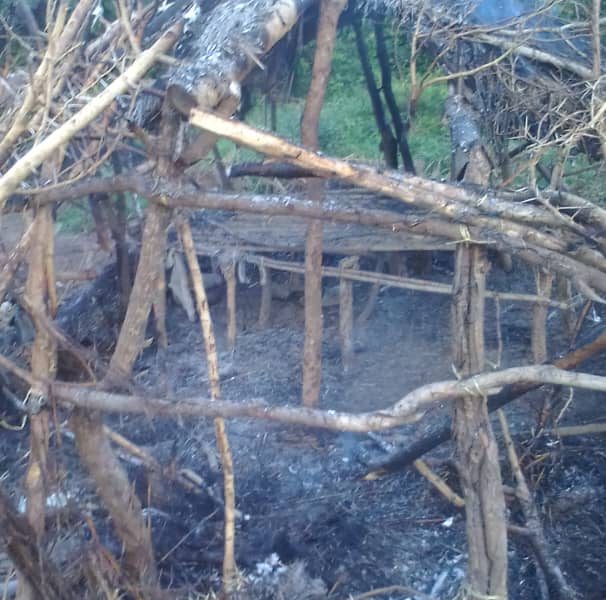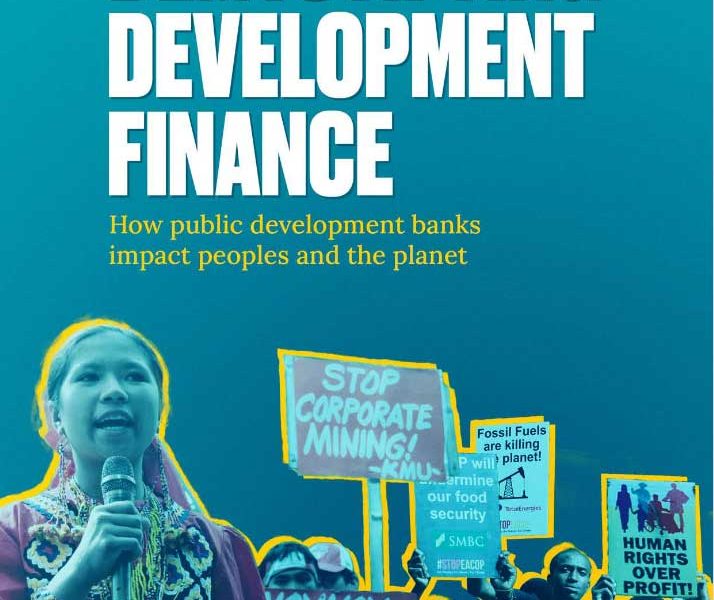MEDIA FOR CHANGE NETWORK
Public development banks are a disaster to the Global Development Agendas – activists and CSOs.
Published
9 months agoon
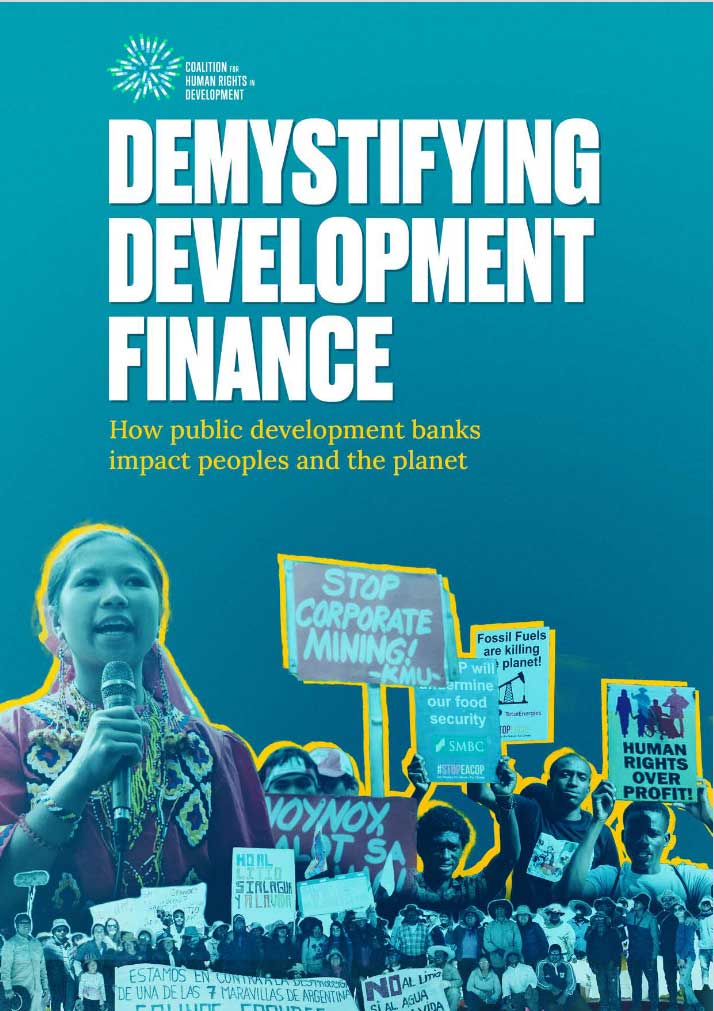
By Witness Radio team.
September is traditionally a busy time in Uganda’s farming calendar. Farmers are busy weeding their plantations, and cattle keepers rejoice as their grasslands thrive, providing abundant feed for their livestock.
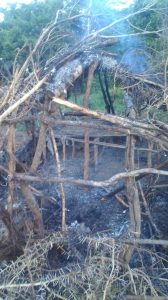
A photo of a burnt grass-thatched house belonging to a community defender in Kiryandongo District.
However, this is different for the community land rights defender Kaliisa Joseph. Instead of enjoying the fruits of his labor, he is now in distress. On September 5th, 2024, Kaliisa’s home was set ablaze, and household items worth more than 1.5 million Ugandan shillings were destroyed. His kraal, which housed over 60 cattle, was also demolished by workers from Agilis Partners, a U.S.-based multinational grain development company in Kiryandongo District.
Joseph Kaliisa, a community land rights in the Kiryandongo district, has been actively engaged in mobilizing his community of more than 3000 residents to push back Agilis Company’s illegal land eviction in the Kiryandondongo district. His home has been repeatedly raided, his crops destroyed, and his animals impounded by the multinational company, which accuses Kaliisa and the people he defends of occupying the land illegally. However, information from Witness Radio indicates that the communities have legal rights to the land.
According to eyewitnesses, these events occurred on Thursday, September 5th, 2024, while Kalisa and his family were away grazing their cattle. Kalisa, who should have been reaping the benefits of his land, now finds himself unable to cultivate or graze freely.
“I can’t use my land as I used to,” Kalisa said. “Whenever I take my cows for grazing, they are seized by the company, and I have to pay 50,000 Ugandan shillings for each cow seized to get it back. Last week, they came and destroyed everything.”
Agilis Partners Limited is receiving multiple financing from different public development banks (PDBs). It has used these funds to displace local communities.
However, whenever the company receives these funds, there is usually a sharp increase in violent land evictions and cattle seizures in Kiryandongo, alongside widespread human rights violations/abuses.
Agilis Partners, owned by U.S. twin brothers Phillip and Benjamin Prinz, has continued to benefit from other funding sources, including the Dutch Oak Tree Foundation, DOB Equity, the United Nations Common Fund for Commodities, the U.K.’s DFID-funded Food Trade Programme, and Vested World.
Kalisa is just one of the millions affected by these public development banks’ (PDBs) funding for companies like Agilis. These communities face illegal evictions, escalating violence, and environmental degradation, all supported by PDBs.
A recent report titled Demystifying Development Finance by 100 Global South activists and civil society experts reveals how PDBs fuel human rights violations, environmental destruction, inequality, and debt in the name of development.
The 52-page report highlights how PDBs, including the World Bank, the Asian Development Bank (ADB), and the Inter-American Development Bank, are driving projects that harm people and the planet and are said to be holding a massive amount of countries’ debt based on a series of eye-opening case studies, data, and critical trend analyses.
According to the report, the available official statistics show that the most significant percentage of PDB financing currently goes to financial services, public administration, trade, energy, transportation, and infrastructure. A significantly lower but significant percentage goes to investment in social sectors such as health, education, housing, water and sanitation, and agriculture.
While some PDBs offer grant-based assistance, most financing comes through loans, often at high interest rates. Like Chinese PDBs, these loans sometimes come with shorter repayment periods. Even institutions like the World Bank’s International Development Association (IDA), which offers concessional loans to the lowest-income countries, are criticized for contributing to debt crises in the Global South.
In 2023, during the Finance in Common Summit (FICS), over 35 civil society activists from more than 20 countries came together to challenge the claims of the world’s largest development banks. These banks present themselves as champions in the fight against climate change and poverty, but activists argue that their projects often exacerbate the problems they claim to solve.
“Development banks are advocating for a bigger role in the global economy,” said Ivahanna Larrosa, Regional Coordinator for Latin America at the Coalition for Human Rights in Development. “But are they truly fit for this purpose? Unfortunately, the stories of communities worldwide show us that development banks are failing to address the root causes of the problems they claim to solve. We need to hold them accountable for this.”
The IFC’s involvement in projects like the Sal de Vida lithium mine in Argentina further demonstrates the problem. In the name of renewable energy, the project is displacing Indigenous communities and destroying fragile ecosystems. At the same time, local authorities, including the police and officials, align with the company to silence dissent by threatening and criminalizing local community leaders and the families living near the construction site.
The negative impacts of PDBs extend across the globe. In Kenya, PDBs have pushed for increased health sector privatization, leading to a divide between those who can afford care and those who cannot. Out-of-pocket healthcare spending in Kenya rose by 53% per capita between 2013 and 2018, deepening inequalities and hampering the country’s progress toward universal health coverage.
Related posts:
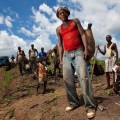
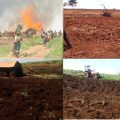 Witness Radio, private companies, CSOs and local government officials are meeting to discuss alternative remedies to salvage the appalling land and environmental rights situation in Kiryandongo district.
Witness Radio, private companies, CSOs and local government officials are meeting to discuss alternative remedies to salvage the appalling land and environmental rights situation in Kiryandongo district.
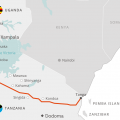 CSOs to African Development Bank: Don’t fund EACOP
CSOs to African Development Bank: Don’t fund EACOP
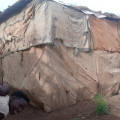 Over 30 CSOs petition US over firm accused of evicting Kiryandongo locals
Over 30 CSOs petition US over firm accused of evicting Kiryandongo locals
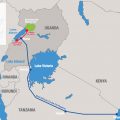 CSOs urge banks and other IFIs not to finance E.Africa oil pipeline project…
CSOs urge banks and other IFIs not to finance E.Africa oil pipeline project…
You may like
MEDIA FOR CHANGE NETWORK
Uganda’s top Lands Ministry official has been arrested and charged with Corruption and Abuse of Office, a significant event that will have far-reaching implications for land governance in the country.
Published
1 day agoon
June 6, 2025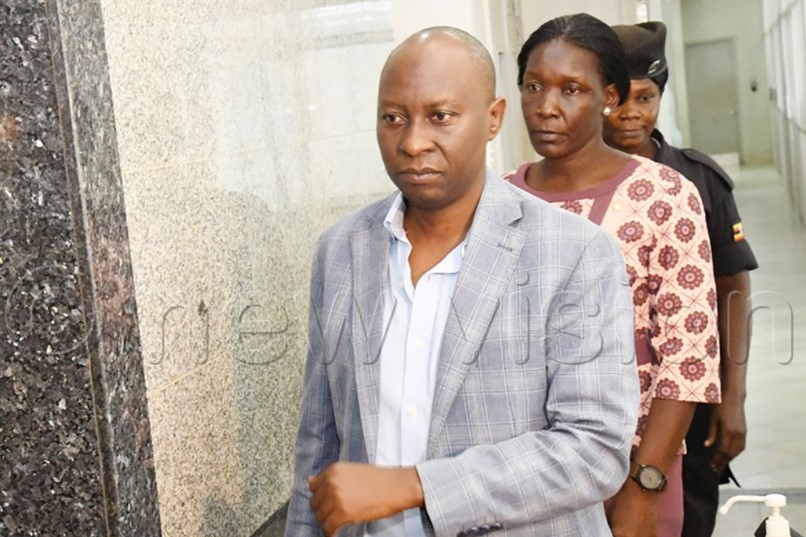
By Witness Radio team.
Kampala, Uganda – The commissioner of Land Registration from Uganda’s Ministry of Lands Housing and Urban Development, Mr. Baker Mugaino, has been arrested and charged before the Anti-Corruption Court, Witness Radio has learned.
Mugaino was arrested by officers from the Office of the Inspectorate of Government (IG) on Wednesday, June 4th, and arraigned before the Anti-Corruption Court, where he was charged with corruption and abuse of office. He pleaded not guilty before Chief Magistrate Rachael Nakyaze.
This development confirms findings from numerous reports and investigations by Witness Radio, a leading watchdog for land and environmental rights in Uganda. Witness Radio, through its extensive research and investigative work, has been at the forefront of uncovering systemic corruption and the misuse of authority, particularly within Uganda’s land administration institutions, which continue to fuel land-related injustices, especially against vulnerable and impoverished communities.
The arrest comes at a critical time when the country is experiencing a surge in land grabs, many of which are tied to fraudulent land dealings, title cancellations, double titling, and land transfers facilitated by compromised officials. This is an urgent situation that demands immediate attention and action.
In one of its reports released in 2024, focusing on forced evictions and emerging trends in Uganda, Witness Radio called on the Government of Uganda to address rampant corruption and abuse of power by those in authority, particularly in land registries, the Uganda Police Force, and the army combined with favoritism towards the wealthy at the expense of the poor. This call for government accountability is crucial to ensure transparency and fairness in land administration.
According to the prosecution, Mugaino, in his role as the commissioner of land registration at the Ministry of Lands, unlawfully canceled land titles on April 8 and 20, 2024, which had previously been issued to Tropical Bank Ltd, Akugizibwe Gerald Mugera, and Namayiba Park Hotel. This action, if proven, could have severe financial and social implications for these entities, potentially leading to significant losses and disruptions.
In addition, Mugaino failed to perform his duties as provided for in Section 85 of the Land Act, Cap 236, and his duties as Commissioner of Land Registration.
The center of contention arises from the land located at Kibuga Block 12, Plots 658, 659, and 665 in Kisenyi; Kibuga Block 4, Plot 152 in Namirembe; and Kyadondo Block 244, Plot 2506, in Uganda’s capital Kampala. These are prime locations that have been subject to numerous land disputes, making Mugaino’s actions particularly significant.
Under Section 87 of the Penal Code Cap 120, Mugaino will face imprisonment for a term not exceeding seven years if convicted and dismissed from public service.
Witness Radio commends the government for taking action against one of its own, recognizing it as a necessary and hopeful step toward addressing the root causes of land evictions and fraudulent land dealings.
Speaking in response to the recent arrest of the Commissioner for Land Registration, Witness Radio’s Team leader, Jeff Wokulira Ssebaggala, emphasized that most land grabs, illegal evictions, and fraudulent land dealings are orchestrated from within government offices by individuals entrusted with public authority.
“It is time for the government to prosecute its own, those whose continued abuse and misuse of public office have directly fueled widespread land injustices.” Mr. Ssebaggala added.
Related posts:
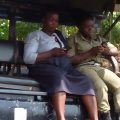
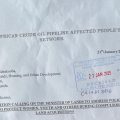 An early bird: oil-affected communities have launched a petition to the Lands Ministry, seeking protection of their rights in the face of forced acquisitions.
An early bird: oil-affected communities have launched a petition to the Lands Ministry, seeking protection of their rights in the face of forced acquisitions.
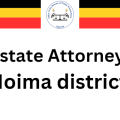 Persecution: The prosecutor’s office is turned into a tool to harass locals for opposing land grabs to give way to the oil project in Mid Western Uganda.
Persecution: The prosecutor’s office is turned into a tool to harass locals for opposing land grabs to give way to the oil project in Mid Western Uganda.
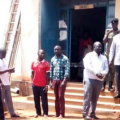 State House Anti-Corruption Unit nets a surveyor implicated in Mubende district land-grabs
State House Anti-Corruption Unit nets a surveyor implicated in Mubende district land-grabs
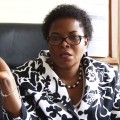 394,000 Land Titles Affected By Closure Of Ministry Of Lands Offices In Wakiso
394,000 Land Titles Affected By Closure Of Ministry Of Lands Offices In Wakiso
MEDIA FOR CHANGE NETWORK
Environmentalists raise red flags over plan to expand oil palm fields in Kalangala
Published
3 days agoon
June 4, 2025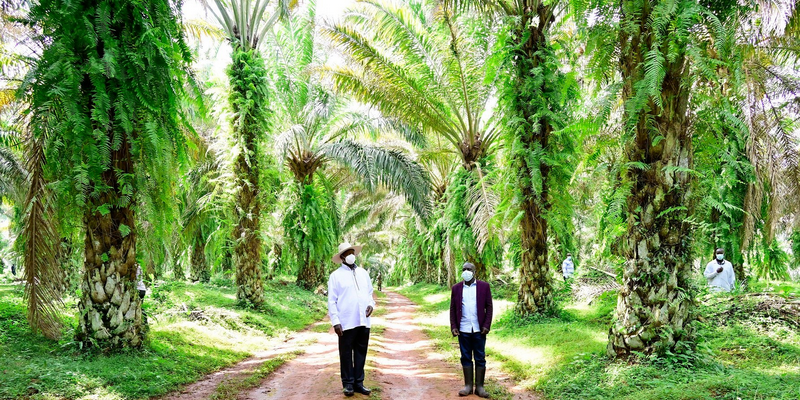
President Museveni inspects an oil palm plantation owned by Mr Deogratious Ssesanga, a model farmer in Kalangala District on May 26, 2023. PHOTO/PPU
Environmentalists have raised fresh concerns over the ongoing expansion of oil palm fields in other parts of Kalangala District, warning that it will degrade the ecosystem in the area.
The expansion follows a 2023 directive by President Museveni, allowing oil palm cultivation beyond Kalangala’s main island of Buggala. The initiative targets over 700 acres on Serinya Island, 600 acres on Lulamba, and 1,500 acres on Bukasa Island. Additional land on Bugaba, Bufumira, Buyovu, and Funve islands is also being earmarked for oil palm cultivation.
Environmentalists say this move contradicts earlier safeguards aimed at preserving the ecological integrity of other islands in Kalangala.
The district comprises 84 islands but only 64 are inhabited.
Mr Joseph Byaruhanga, the Kalangala District environmental officer, said the original Environmental and Social Impact Assessment (ESIA) recommended limiting oil palm to Buggala to protect the natural forests and promote food crop diversity elsewhere.
“The intent was to preserve the natural forests on other islands and maintain food crop cultivation,” Byaruhanga explained in an interview on June 3.
Oil palm cultivation in Kalangala began in 2006, primarily on mailo land. Currently, over 12,000 hectares are under cultivation, including land managed by smallholder farmers and Oil Palm Uganda Limited (OPUL).
Records at the Kalangala District Environment Office indicate that forest cover has plummeted from 57 per cent in 1954 to just 22 per cent currently. The primary drivers of deforestation include rice farming (20 per cent), oil palm growing (18 per cent), and a combination of timber harvesting, settlement, and charcoal burning (16 per cent).
“The economic benefits are pushing residents to clear more land for oil palm, but this has long-term consequences—sedimentation, pollution, and even increased lake accidents and windstorms due to changing weather patterns,” Byaruhanga warned.
“Kalangala is surrounded by shallow waters. Without vegetation to anchor the soil, siltation could gradually fill the lake. If oil palm must expand, then we need a parallel forest restoration programme.” he added.
Mr David Kureeba, a senior programme officer Forests , Biodiversity and Climate Change at National Association of Professional Environmentalists (Nape) cautioned that unregulated oil palm expansion is a looming environmental disaster in the island district . “Although oil palm is a tree-like crop, it does not replicate the ecological functions of natural forests,” he explained.
“Oil palm trees may live for 25 years, but they are no match for indigenous forests. Natural forests are biodiversity hubs with wide canopies, climbing plants, and complex ecosystems,” he added.
Mr Kureeba also noted that forest cover clearance releases greenhouse gases like methane and carbon dioxide, exacerbating global warming. “Methane alone contributes to nearly a quarter of global climate change impacts. Destroying forests releases these gases into the atmosphere,” he said.
“Forests also regulate climate through evapotranspiration, contributing to cloud formation and rainfall. The morning dew and fresh air we enjoy come from forests. Without them, even moisture exchange through leaf stomata disappears,” he further explained.
Mr Frank Muramuzi, NAPE Executive Director, emphasised Kalangala’s vulnerability due to its island geography.
“Clearing forests removes natural windbreaks, exposing the area to strong winds and dangerous weather patterns like tornadoes,” he said.
“Oil palm doesn’t absorb as much carbon dioxide or release as much oxygen as broadleaf trees. Replacing forests with oil palm only worsens the problem,” he added.
Mr Muramuzi also criticised Uganda’s EIA process. “Developers often conduct their own assessments, which tend to downplay environmental risks in favour of economic benefits,” he said.
Despite these concerns, project proponents insist the expansion is being handled responsibly.
Mr Boaz Zaake, an agronomist with Ssese Oil Palm Growers Cooperative Society Limited ( SOPAGCO), said farmers are using cover crops and maintaining buffer zones to prevent erosion and water pollution.
He also argued that most of the targeted land for new oil palm fields was previously abandoned due to tsetse fly infestations and not part of any protected forests.
“All national forests have been preserved. Oil palm trees do produce oxygen just like other trees,” he said.
Mr Muramuzi, however, dismissed this claim, arguing that oil palm trees contribute little to climate regulation.
“Oil palm isn’t a real tree in ecological terms. It has a small leaf surface and limited capacity for carbon capture. Unlike broadleaf indigenous trees, it offers minimal environmental benefits,” he said.
Kalangala Resident District Commissioner, Fred Badda, said an Environmental Impact Assessment will be conducted before any new expansion of oil palm fields is done.
“We are currently assessing the land’s availability and historical use—whether it was forested or not—before proceeding with the EIA,” he said.
At least 11,800 hectares of oil palm trees have so far been planted on Kalangala’s main Island of Buggala in the past two decades, and recently, the project started expanding to other islands of Bunyama, Bukasa and Bubembe.
Source: Monitor
Related posts:
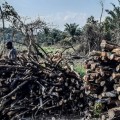
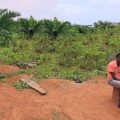 Palm oil plantation expansion: A disturbing alliance between a palm oil company, district officials, and a college school is actively seizing land from farming communities in Buvuma district for their own profit.
Palm oil plantation expansion: A disturbing alliance between a palm oil company, district officials, and a college school is actively seizing land from farming communities in Buvuma district for their own profit.
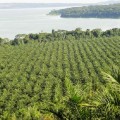 New programme takes over palm oil growing in Uganda
New programme takes over palm oil growing in Uganda
 Palm Oil project investor in Landgrab: Witness Radio petitions Buganda Land Board to save its tenants from being forcefully displaced palm oil plantation.
Palm Oil project investor in Landgrab: Witness Radio petitions Buganda Land Board to save its tenants from being forcefully displaced palm oil plantation.
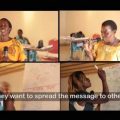 Resisting Oil Palm Plantations in Uganda
Resisting Oil Palm Plantations in Uganda
MEDIA FOR CHANGE NETWORK
Bridging the access to justice gap: Witness Radio trains paralegals ahead of Uganda’s general election.
Published
1 week agoon
May 29, 2025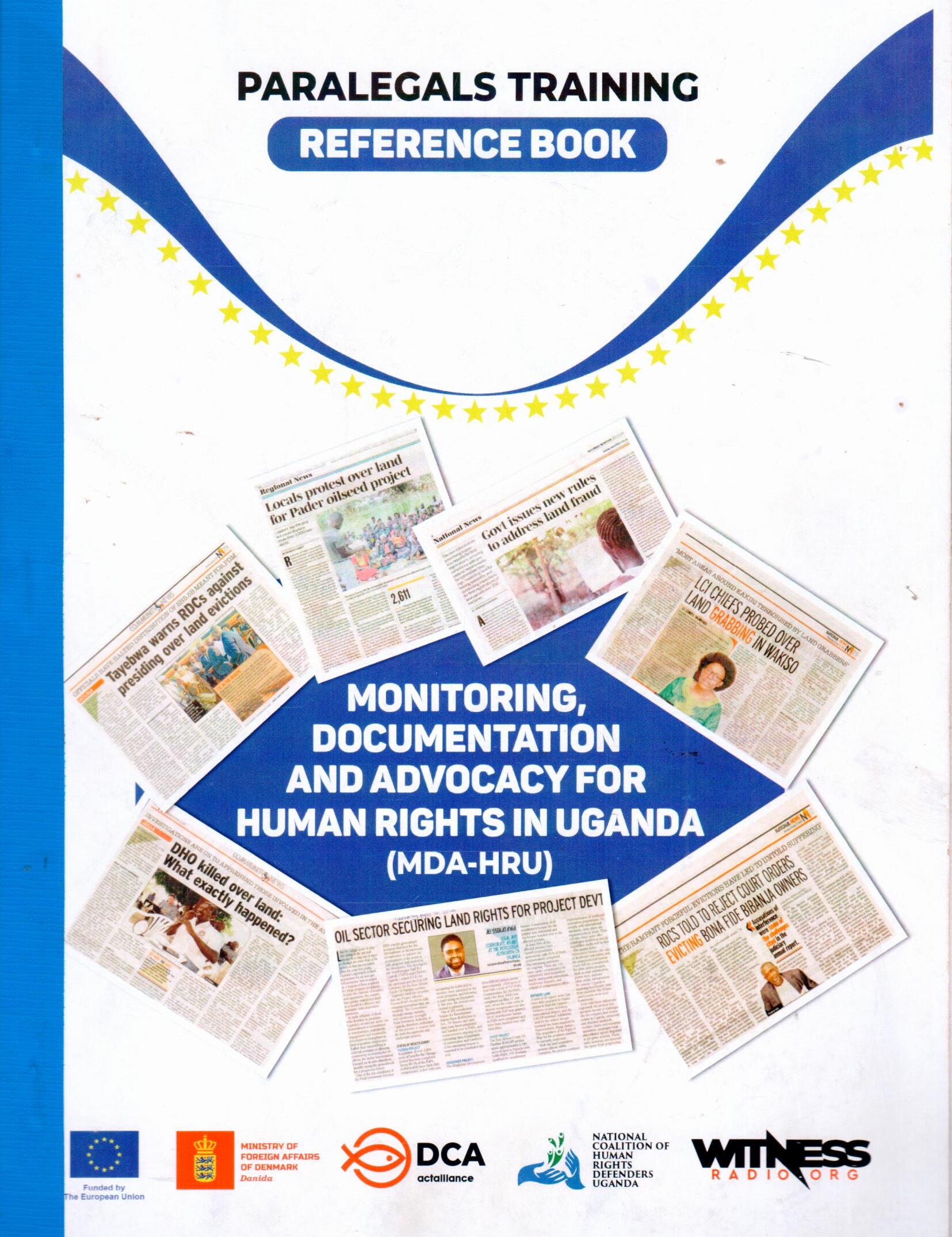
By Witness Radio team.
Kiryandongo, Uganda—Communities across Uganda are currently in the midst of a pressing and severe crisis due to the impacts of land-based investments. These include forced evictions, lack of consultation, and concealed project information. These injustices persist due to a widespread lack of legal awareness and limited access to justice among affected communities.
As Uganda enters the general election period, more farming communities’ land will continue to be forcibly taken from them by multinationals and individual investors, and the number of community land rights and environmental defenders will likely increase. This is because citizen’s liberty is at stake during electoral periods and all justice institutions quite often prioritize electoral justice during this period. Besides, perpetrators of forceful land evictions may use merits of electoral violence to criminalize land and environmental rights defenders in order to silence their activism. Community land rights and environmental defenders work to protect the rights of communities to their land and natural resources. Witness Radio has documented and provided legal representation to dozens of them whose work has been criminalized by wealthy individuals and multinationals.
“We are often evicted from our land without prior consultation, compensation, or meaningful resettlement,” said Benon Beryaija, a community representative from Kiryandongo district. “The evictors tell us they have ultimate power over our land and that we have no right to resist. These evictions happen without following the law.”
Beryaija is among the thousands of people in Kiryandongo whose land was grabbed by a group of multinationals without compensation or resettlement. According to Witness Radio, Agilis Partners Limited is among the multinational companies alongside Kiryandongo Sugar Limited and Great Seasons SMC Limited that have forcibly displaced over 35,000 people to pave the way for large-scale agricultural operations since 2017.
“But all this violence continues because we are ignorant about the law,” Beryaija added. “We don’t know what to do, what to ask for, or how to demand accountability. The companies use this gap to take advantage.”
To address this critical gap in legal knowledge, Witness Radio Uganda, in collaboration with the European Union, Dan Church Aid (DCA), and the National Coalition for Human Rights Defenders in Uganda (NCHRD-U), conducted the first-ever paralegal training for selected community activists against irresponsible Land-Based Investments (LBIs) and Land and Environmental Defenders (LEDs) in the Midwestern Subregion of Uganda. This initiative aims to equip grassroots defenders with basic legal tools to resist human rights violations and abuses as well as land injustices and environmental destruction and to advocate for their communities, instilling a sense of empowerment and hope.
“Community defenders are at the forefront of the fight for land rights and environmental justice and should provide that first-hand legal support, but they often lack the tools to engage with legal systems or resolve disputes effectively. We are currently emphasizing the importance of equipping communities with legal knowledge on land and environmental rights, a clear understanding of what to do when a defender is arbitrarily arrested and detained or disappears, what to do when an investor comes to communities’ land, how to effectively to document human rights violations/abuse, and practical ways to speak to power and hold perpetrators to account for their deeds,” said Mrs. Bulyerali Joan, Witness Radio’s Head of Community Empowerment.
The three-day training, held last week from May 19th to 21st in Uganda’s mid-western region, brought together 20 participants from eviction-prone districts, including Kiryandongo, Hoima, Masindi, Kibale, Kagadi, and Buliisa. This training, which covered key topics, was a significant step in the fight against land evictions, as highlighted in a 2024 Witness Radio report on land evictions. The report, based on extensive research and interviews with affected communities, revealed the alarming rate of land evictions and the urgent need for legal empowerment among these communities.
The training covered key topics, including understanding the criminal justice system and how it operates, how to represent others and oneself in interactions with the police or in court, understanding land and environmental rights, documenting violations, legal processes for seeking redress, community mediation techniques, and how to demand accountability from perpetrators.
“Our goal is to empower them with the legal knowledge necessary to act as first responders in their communities, especially during this upcoming general election, to stop arbitrary arrests and detention, empower communities to push back illegal land evictions, and guide others even without the immediate presence of lawyers or our organization.” Ms. Buryelari added, underlining the crucial role of the paralegals in the upcoming elections.
Oyungi Jovia, one of the Land and Environmental Defenders (LEDs) who participated in the training, described it as impactful and an eye-opener, particularly in addressing pressing community concerns and understanding their role in mitigating harm. The training has not only equipped her with the necessary legal knowledge but also boosted her confidence in supporting those who seek her help.
“We didn’t know the legal processes to follow. Now we know where to start, what documents are required, and how to collect and present evidence in land-related cases,” she shared. “I have learned how to guide community members in legal matters, and now more confident in my ability to support those who come to me for help.”
Before the training, Jovia admitted that she and others often struggled to respond to community concerns due to their limited understanding of the law. “People would come to us for advice, but we barely knew what to tell them. This training has changed everything.” She added.
As land-based conflicts continue to rise in Uganda, particularly in regions targeted by large-scale agribusiness projects, Witness Radio’s paralegal initiative represents a significant step toward community-led access to justice and legal empowerment.
“We are building a network of informed grassroots leaders,” Mrs. Bulyerali emphasized, “who can defend their peers, community land rights, document violations, and help others seek justice, even in the absence of Witness Radio.”
Related posts:

 Witness Radio, private companies, CSOs and local government officials are meeting to discuss alternative remedies to salvage the appalling land and environmental rights situation in Kiryandongo district.
Witness Radio, private companies, CSOs and local government officials are meeting to discuss alternative remedies to salvage the appalling land and environmental rights situation in Kiryandongo district.
 Witness Radio Uganda wins the best CSO land rights defenders award at the National Land Forum Awards.
Witness Radio Uganda wins the best CSO land rights defenders award at the National Land Forum Awards.
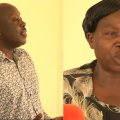 Kiryandongo leadership agree to partner with Witness Radio Uganda to end rampant forced land evictions in the district.
Kiryandongo leadership agree to partner with Witness Radio Uganda to end rampant forced land evictions in the district.
 Local communities lost over 60,000 acres of land to grabbers at a time Witness Radio – Uganda was under a suspension.
Local communities lost over 60,000 acres of land to grabbers at a time Witness Radio – Uganda was under a suspension.

Uganda’s top Lands Ministry official has been arrested and charged with Corruption and Abuse of Office, a significant event that will have far-reaching implications for land governance in the country.

Environmentalists raise red flags over plan to expand oil palm fields in Kalangala

Bridging the access to justice gap: Witness Radio trains paralegals ahead of Uganda’s general election.

Ugandan Communities Say Total’s Oil Project Is More of a Land Grab than a Development Opportunity

EACOP project triggers floods in Kyotera District.

Ugandan activist asks HSBC to put ‘lives before profit’ as campaigners target bank’s AGM

Bridging the access to justice gap: Witness Radio trains paralegals ahead of Uganda’s general election.

A decade of bloodshed: 1,088 Human Rights defenders killed for resisting corporate abuse

Innovative Finance from Canada projects positive impact on local communities.
Over 5000 Indigenous Communities evicted in Kiryandongo District
Petition To Land Inquiry Commission Over Human Rights In Kiryandongo District
Invisible victims of Uganda Land Grabs
Resource Center
- LAND GRABS AT GUNPOINT REPORT IN KIRYANDONGO DISTRICT
- RESEARCH BRIEF -TOURISM POTENTIAL OF GREATER MASAKA -MARCH 2025
- The Mouila Declaration of the Informal Alliance against the Expansion of Industrial Monocultures
- FORCED LAND EVICTIONS IN UGANDA TRENDS RIGHTS OF DEFENDERS IMPACT AND CALL FOR ACTION
- 12 KEY DEMANDS FROM CSOS TO WORLD LEADERS AT THE OPENING OF COP16 IN SAUDI ARABIA
- PRESENDIANTIAL DIRECTIVE BANNING ALL LAND EVICTIONS IN UGANDA
- FROM LAND GRABBERS TO CARBON COWBOYS A NEW SCRAMBLE FOR COMMUNITY LANDS TAKES OFF
- African Faith Leaders Demand Reparations From The Gates Foundation.
Legal Framework
READ BY CATEGORY
Newsletter
Trending
-
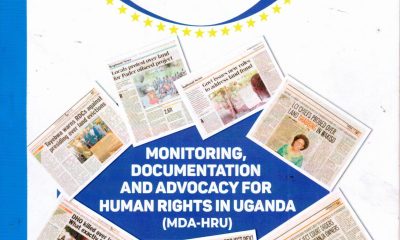
 MEDIA FOR CHANGE NETWORK1 week ago
MEDIA FOR CHANGE NETWORK1 week agoBridging the access to justice gap: Witness Radio trains paralegals ahead of Uganda’s general election.
-

 MEDIA FOR CHANGE NETWORK1 week ago
MEDIA FOR CHANGE NETWORK1 week agoA decade of bloodshed: 1,088 Human Rights defenders killed for resisting corporate abuse
-

 MEDIA FOR CHANGE NETWORK1 week ago
MEDIA FOR CHANGE NETWORK1 week agoUgandan Communities Say Total’s Oil Project Is More of a Land Grab than a Development Opportunity
-
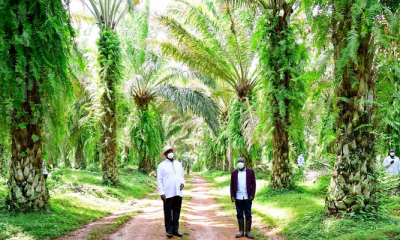
 MEDIA FOR CHANGE NETWORK3 days ago
MEDIA FOR CHANGE NETWORK3 days agoEnvironmentalists raise red flags over plan to expand oil palm fields in Kalangala
-
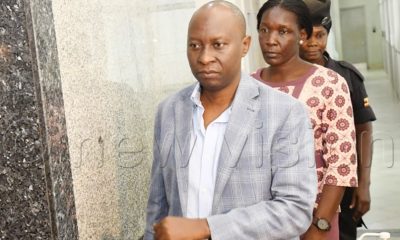
 MEDIA FOR CHANGE NETWORK1 day ago
MEDIA FOR CHANGE NETWORK1 day agoUganda’s top Lands Ministry official has been arrested and charged with Corruption and Abuse of Office, a significant event that will have far-reaching implications for land governance in the country.

